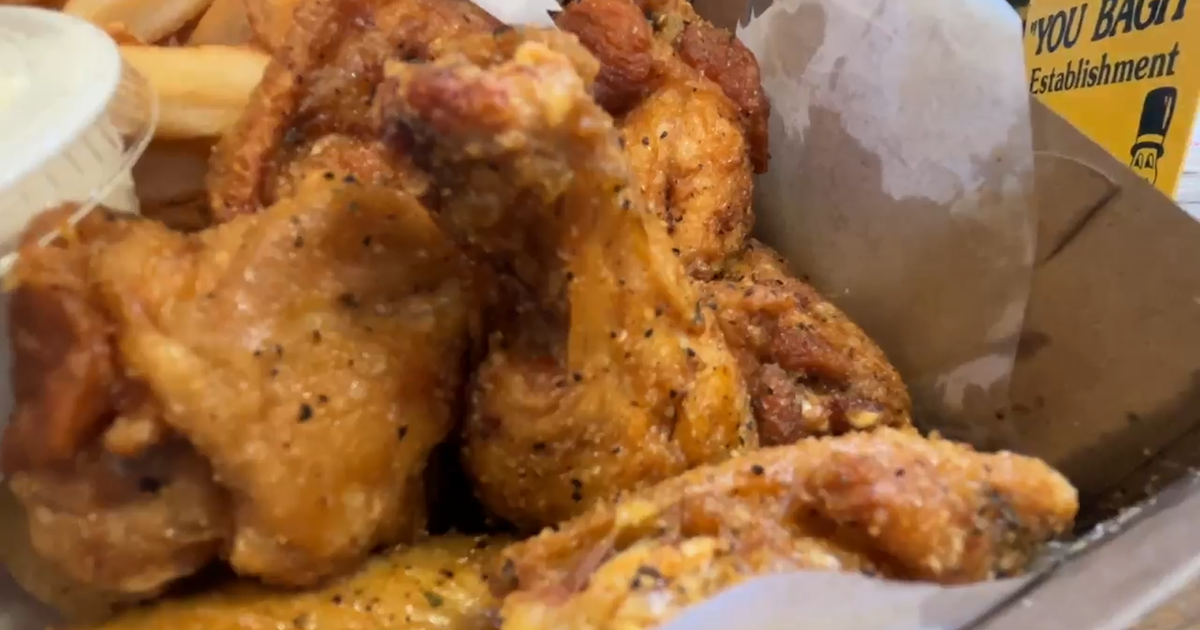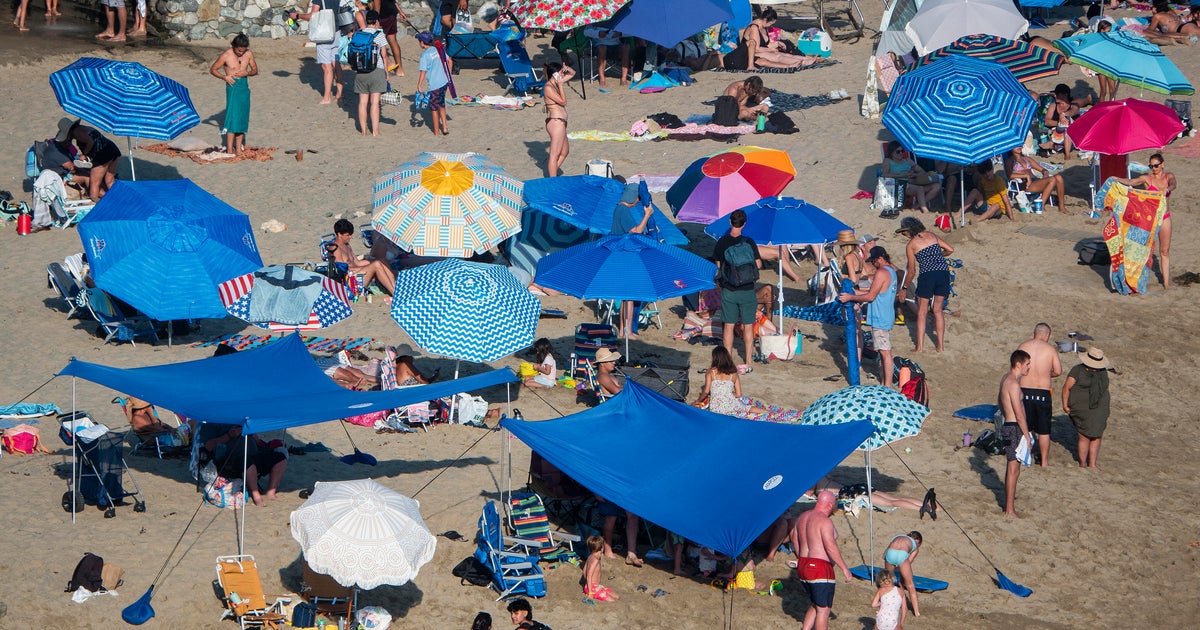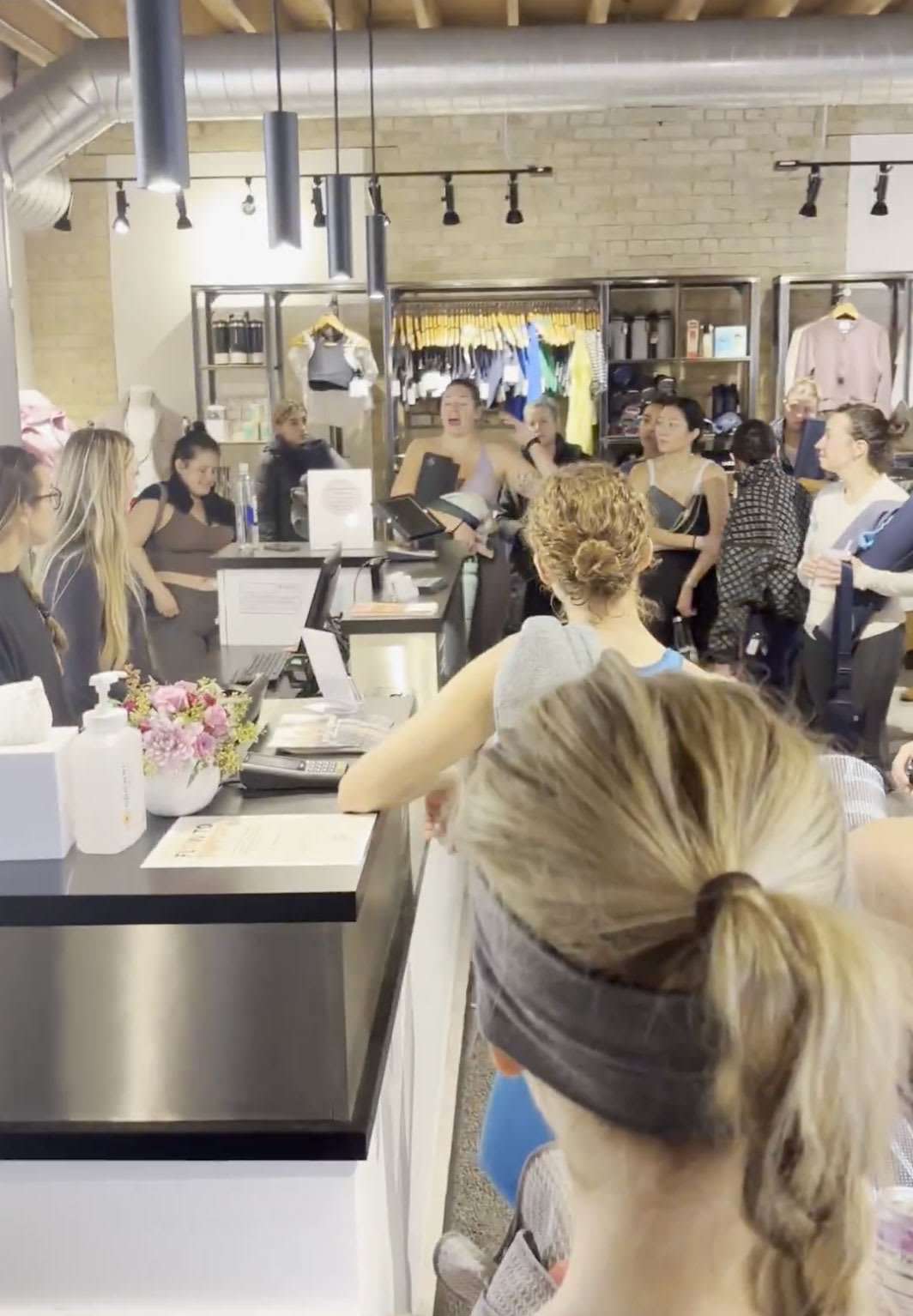"Hero pay" dispute in California leaves some grocery workers feeling "scared"
In Long Beach, California, where the city council recently passed a "hero pay" ordinance for its grocery workers, there has been pushback to the new rule by grocery store chains.
Employees at a Food 4 Less store say it's one of the top earners in the region, and yet it's closing because – according to parent company Kroger – it can't afford to stay open.
Bertha Ayala has worked the butcher counter at the Long Beach Food 4 Less for 14 years. Last year was the busiest and hardest. When asked if she worries about her health when she goes to work every day, she said, "Oh yeah, I'm very worried."
And for good reason: She is 61 years old, diabetic, and works six days a week because she was told her work is "essential" during the coronavirus pandemic.
Correspondent Jonathan Vigliotti asked, "Do you feel like Food 4 Less recognizes you as a hero?"
"They said, but I don't believe it," Ayala replied.
"It sounds like you're saying they're not putting their money where their mouth is?"
"Yeah. I feel like we are not important to them," said Ayala.
When Long Beach passed a mandate for temporary hazard pay late last month, requiring chain grocery stores to pay $4 an hour extra for 120 days, parent company Kroger announced the store was one of two closing. Their reason? The store couldn't afford to stay open.
Ayala says she feels she is caught in the middle of a political fight.
Her union says her Food 4 Less store saw sales from March to August rise 29% from the year before. And according to financial records, Kroger — the largest grocery chain in the country — earned twice as much in 2020 as the previous year.
The hero pay ordinance has also prompted a lawsuit from the California Grocers Association.
"You know, the one thing that we do agree with is that our employees are our heroes," said association president Ron Fong. "However, it is really unprecedented to have a city council demand what businesses should do with their wages."
Fong says grocers should decide if they want to give employees hazard pay, and some have: "It's two dollars, it's three dollars, it's gift cards, gas cards. They are our heroes, and we have done everything possible that we can to keep them safe in our grocery stores."
Ayala said Kroger has given her a few gift cards to spend in its company's stores, but they're inconsistent, and insufficient compared to hazard pay. Now, she faces a pandemic without a job or health insurance.
More than 28,000 grocery workers nationwide have been exposed to a COVID case, and more than 100 have died from the virus, said Ayala's union, United Food & Commercial Workers. More than 1,800 of the members in this area chapter have fallen ill from COVID-19.
"I have to go see the doctor very often," Ayala said.
"Are you scared?" Vigliotti asked.
"I'm really scared."
Ayala said she wants hazard pay, but more important, she wants to keep her job.
In a statement, Kroger said the City of Long Beach's ordinance is unfair since it only applies to large chains (those with at least 300 employees), and it blames the city council for overstepping the traditional bargaining process.
See also:




